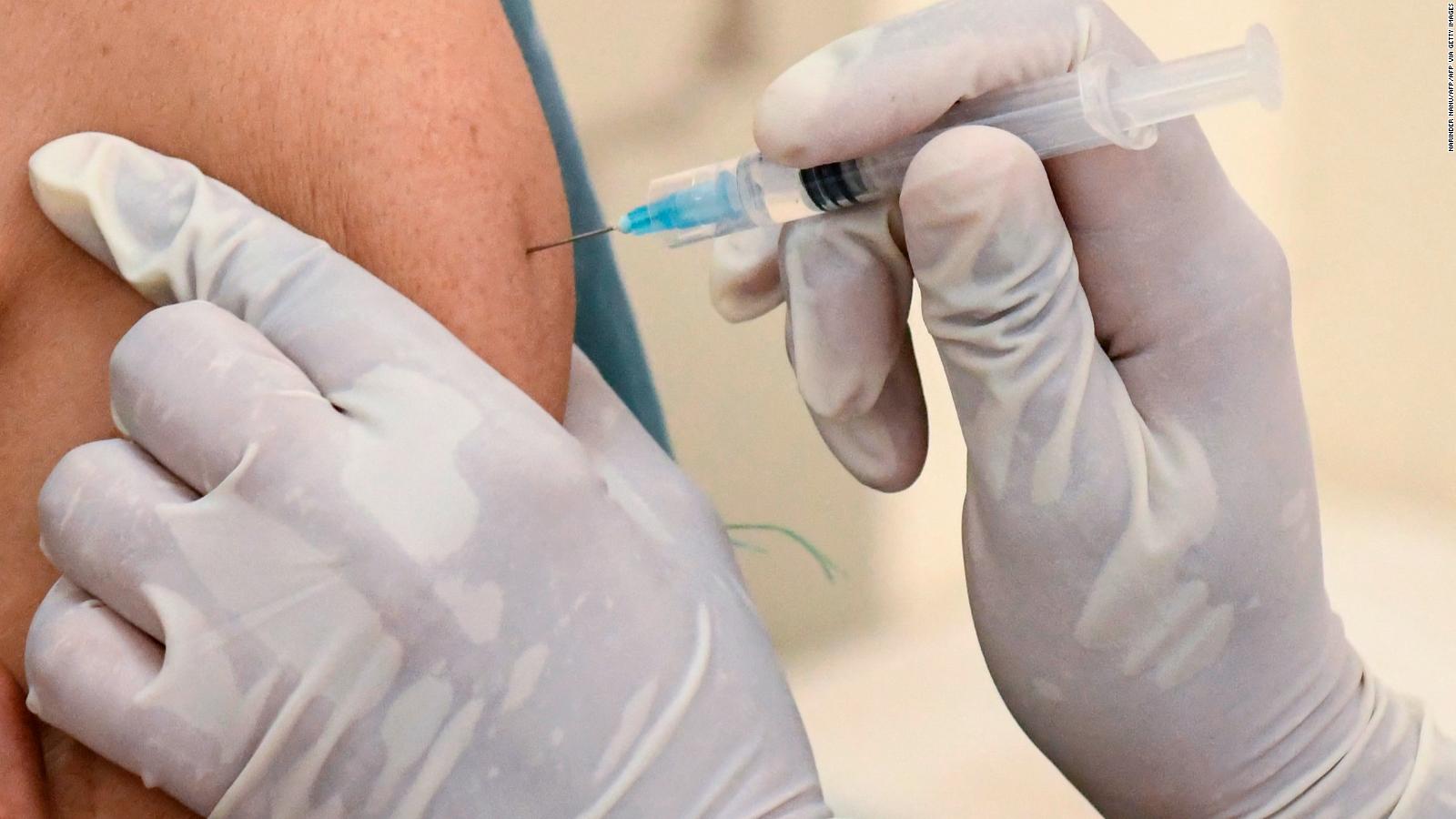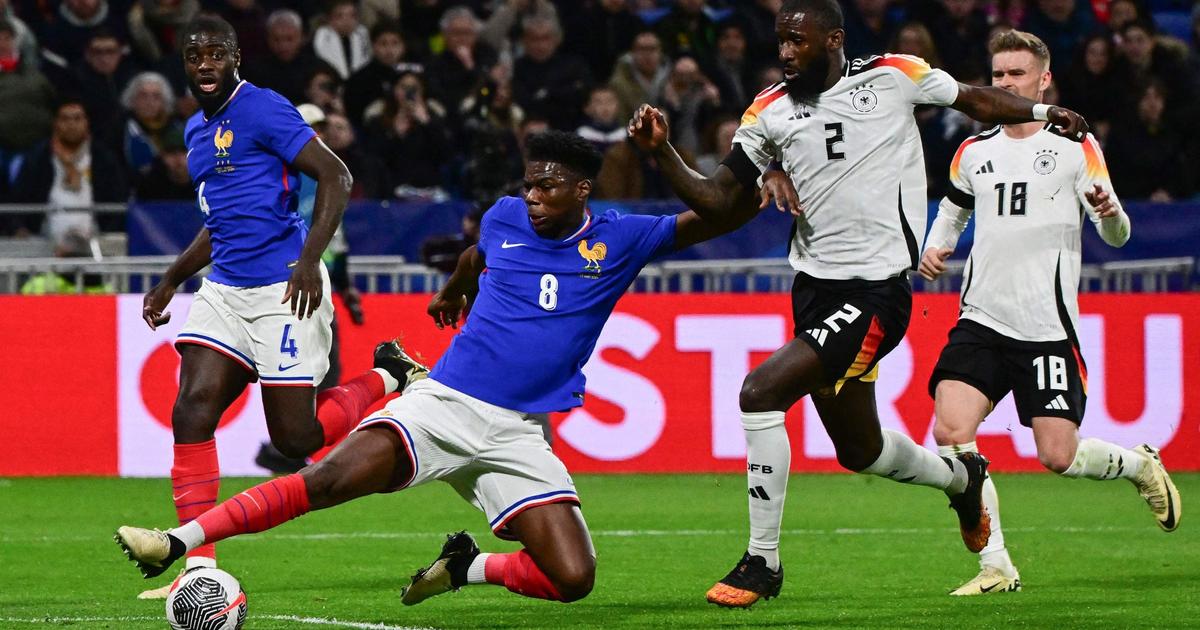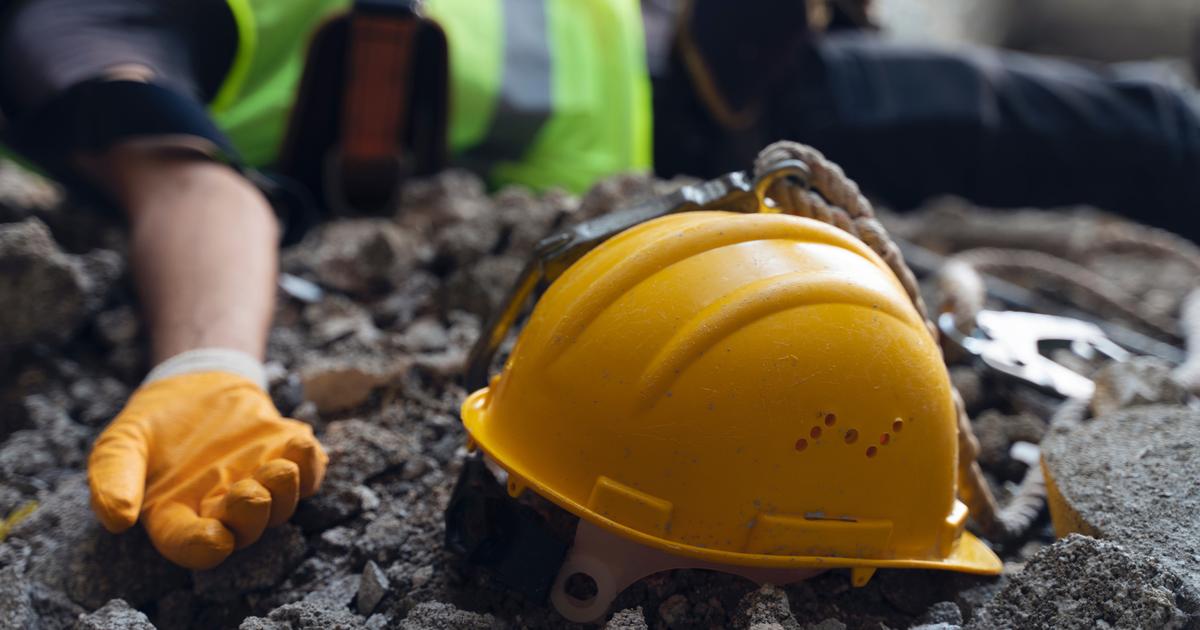Fatigue effect could make it difficult to fight covid-19 1:11
(CNN Spanish) -
Starting on September 20, the United States will begin offering a booster dose of the covid-19 vaccine for the Pfizer / BioNTech and Moderna vaccines.
Officials are still collecting data for Johnson & Johnson's single-shot vaccine.
US public health officials and medical experts say that while licensed COVID-19 vaccines are "remarkably effective in reducing the risk of severe illness, hospitalization, and death, including against the widely circulating delta variant," the Protection against coronavirus decreases over time.
How Strong Is The Science To Justify A Booster Dose Of Covid-19 Vaccines?
"Current protection against serious illness, hospitalization and death could decline in the coming months, especially among those who are at higher risk or were vaccinated during the early stages of the vaccine launch," a statement from the Centers for Disease Control reads. Disease Control and Prevention (CDC), released Wednesday.
"For that reason, we concluded that a booster injection will be needed to maximize the protection induced by the vaccine and prolong its durability," they add.
The booster vaccine for everyone in the US was announced days after the third dose of the COVID-19 vaccine for immunosuppressed people was authorized.
advertising
WHO recommends that the most vulnerable get vaccinated before booster vaccines are more widely offered
Despite the announcement, the vaccination plan to administer a booster dose against COVID-19 is pending review by the US Food and Drug Administration (FDA) and approval from the US Food and Drug Administration (FDA). CDC.
Some countries such as Germany, Chile and Israel, approved a third dose of the vaccine against covid-19.
Israel, for example, was one of the first to do so following a strong recommendation from the government-appointed team of experts to offer older adults a third dose.
See on this map which countries have already approved a third dose of the covid-19 vaccine
But how necessary is the booster vaccine against covid-19?
This is all we know on the subject.
USA: Why do so many teens get vaccinated against covid-19?
1:02
One step ahead of the virus
After the recent announcement about the application of a booster dose for everyone in the US, Dr. Vivek Murthy, Director General of Health, explained that although vaccines against covid-19 protect against severe cases of covid-19, hospitalization and death, current data suggest that protection against mild and moderate disease diminishes over time.
The highly contagious delta variant, which accounted for 83% of new cases in the U.S. by the end of July, also reduces the effectiveness of the vaccine, according to new data presented in the Morbidity and Mortality Weekly Report (MMWR, for its acronym in English) from the CDC.
What's different about the delta variant?
This is what is known
"We are concerned that this pattern of decline will continue and eventually lead to less protection against serious illness, hospitalization and death. Booster shots may help restore that protection," Murthy wrote in a tweet.
Murthy stressed that "vaccines are still our way out" and that the reinforcement is a way to expand and improve protection against covid-19.
Three separate studies show how the protection against COVID-19 provided by vaccines can decline over time, said Dr. Rochelle Walensky, director of the CDC, during Wednesday's briefing.
One such study, conducted in New York, found that the vaccine's effectiveness against newly diagnosed covid-19 decreased from 92% to 80% over time from May 3 to July 25, according to records from the state vaccinations.
Questions from the audience about the coronavirus: Can I infect people if I become infected with covid-19 post-vaccination?
"This allowed New York to study the effectiveness of the vaccine against infection over time for more than 10 million New Yorkers of all ages," Walensky said.
The Mayo Clinic study found that effectiveness fell from 76% to 42% among those who received the Pfizer vaccine and from 86% to 76% among those who received the Moderna vaccine.
And a third study found that the effectiveness of the vaccine against COVID-19 infection among nursing home residents decreased from 75% in March to 53% in August, Walensky said.
Study defends booster doses against covid-19 1:20
Immunological bases for a third or booster dose
During Wednesday's briefing, Dr. Anthony Fauci presented a series of studies supporting the application of a booster dose of covid-19 mRNA vaccines.
Fauci highlighted four points:
Antibody levels decrease over time, regardless of the appearance of the variants.
Higher levels of antibody are associated with higher levels of vaccine efficacy.
Higher levels of antibodies may be required to protect against the delta variant.
A booster dose increases antibody levels 10 times.
The data shows that a booster dose allows the body to make a new batch of antibodies, Fauci said.
These trap the virus when it tries to enter the body and could prevent the virus from multiplying in the nose and throat after someone breathes it in.
Why Covid-19 Infections After Vaccination Are Not A Sign Of Vaccine Failure
"The increase [of antibodies] with a boost is really surprising - a multiple increase - that it is conceivable that it is important to reduce the level of virus in the nasopharynx, which could have an impact on transmission. I certainly hope that is the one. case, "Fauci said.
"If so, then you really could get multiple benefits from doing this. You can gain benefits for the disease, the severity of the disease, and ultimately the infection and transmission. But the bottom line with full transparency is that we don't know. good now, "he added.
Fauci supports that vaccination against covid is mandatory 0:23
What if I received the Johnson & Johnson single dose vaccine?
Approximately 14 million fully vaccinated people in the US received the Johnson & Johnson single-dose vaccine and, as of yet, are not part of the booster dose conversation.
"Our J&J patients have not been overlooked or neglected. It's just the way the data comes in," said Dr. William Schaffner, a professor in the Division of Infectious Diseases at Vanderbilt University Medical Center.
"You cannot make good recommendations without the data," he added.
Those who received the Johnson & Johnson COVID-19 vaccine will have to wait longer for the booster dose
For its part, a Johnson & Johnson spokesman told CNN on Tuesday that the company is gathering additional data to see if booster shots are necessary.
"Ensuring durable and long-term protection against hospitalization and death is critical to curbing the covid-19 pandemic," the company said in an email to CNN.
"Johnson & Johnson continues to diligently generate and evaluate evidence from ongoing trials, as well as emerging real-world evidence, while assessing the need for a Johnson & Johnson COVID-19 vaccine booster."
Study evaluates whether booster dose of J&J is necessary 0:45
What happens if the booster dose is missed?
Whether or not the doses of the coronavirus booster vaccine are changed, skipping a booster dose, if one is recommended in the future, could leave someone less protected against COVID-19.
Boosters of the covid-19 vaccine are authorized for some.
This is what you need to know
"A person who missed a booster is at a higher risk of becoming infected and contracting SARS-Coronavirus-2 disease, but I would also expect them to have some partial immunity and thus may be protected against more serious illness," Dr. William Moss, a professor and executive director of the International Center for Vaccine Access at the Johns Hopkins Bloomberg School of Public Health, told CNN in May.
SARS-CoV-2 is the virus that causes covid-19.
Moss explained that missing a booster dose has a higher risk of infection and disease than someone who received the booster, but has more immunity than someone who has not been vaccinated.
Who will get the booster shot in the US?
0:29
How Often Will A Covid-19 Booster Vaccine Be Needed?
While some experts predict that a booster dose of the coronavirus vaccine might be needed annually, Dr. Anthony Fauci, director of the U.S. National Institute of Allergy and Infectious Diseases, has said the bottom line is that no one will. still know.
"We are evaluating this day by day, week by week, month by month, looking at various studies, both international and national," he said.
How Concerned Should People Be About Post-vaccination Covid-19 Infections?
Over time, a booster dose of the Covid-19 vaccine may be just part of the completion of the immunization, not an annual requirement, said Dr. Peter Marks, director of the Center for Evaluation and Evaluation last week. FDA Biological Research.
"It may just be that to get the really good kind of immunity against COVID-19 that we get with some other vaccines, a series of three vaccines may be necessary, in the same way as adult hepatitis B and the primary vaccination series. multiple child needs to be vaccinated, you know, 0, 1; or 0, 2 and 4; or 0, 2 and 6 months. "
Can the covid-19 vaccine be substituted?
1:24
"It's not just about one country," says WHO
Dr. Mike Ryan, executive director of the World Health Organization's health emergencies program, said Wednesday that giving booster vaccines against Covid-19 is like giving extra life jackets to people who already have them.
Regardless of how much agreement science gets on the benefits of booster doses, "the reality is that right now, today, if we think of this in terms of an analogy, we are planning to deliver additional life jackets to people who already have life jackets. While we let other people drown without a single life jacket, "Ryan said during a press conference in Geneva.
The WHO maintains that offering booster doses to a large proportion of the population when many people still do not receive the first dose "undermines the principle of national and global equity."
Most poor countries do not have enough doses of Covax to continue vaccination, says WHO
According to data from Our World in Data, by August 18, 2021, 31.8% of the world's population has received at least one dose of the covid-19 vaccine, while 23.9% are completely vaccinated.
Only 1.3% of people residing in poor countries have received at least one dose.
For her part, Maria van Kerkhove, WHO technical lead for covid-19, told CNN's John Berman on Tuesday that the WHO continues to recommend that people at higher risk of contracting COVID-19 should be fully vaccinated before they large populations in some countries receive a booster dose.
Van Kerkhove explained that the objective is to ensure that “those who are most at risk, the older populations, people with underlying conditions (comorbidities) and, fundamentally, our health workers in all countries of the world, receive that first and second dose, before administering the boosters for those who do not necessarily need it right now. "
Covid-19 in Latin America: This is how vaccination rates are going by country
“It is not just about one country.
We have a limited number of vaccines.
There is a limited amount of production.
We need to use those doses to be epidemiologically sound, morally sound, economically sound, scientifically sound.
And that really focuses on those who are most at risk, ”he said.
When asked if the WHO supports the majority of Americans receiving the booster dose now, van Kerkhove said this is a global problem that needs a global solution.
Should pregnant women get vaccinated against covid-19?
0:33
Jacqueline Howard and Naomi Thomas contributed to this report.
coronavirusCovid-19







